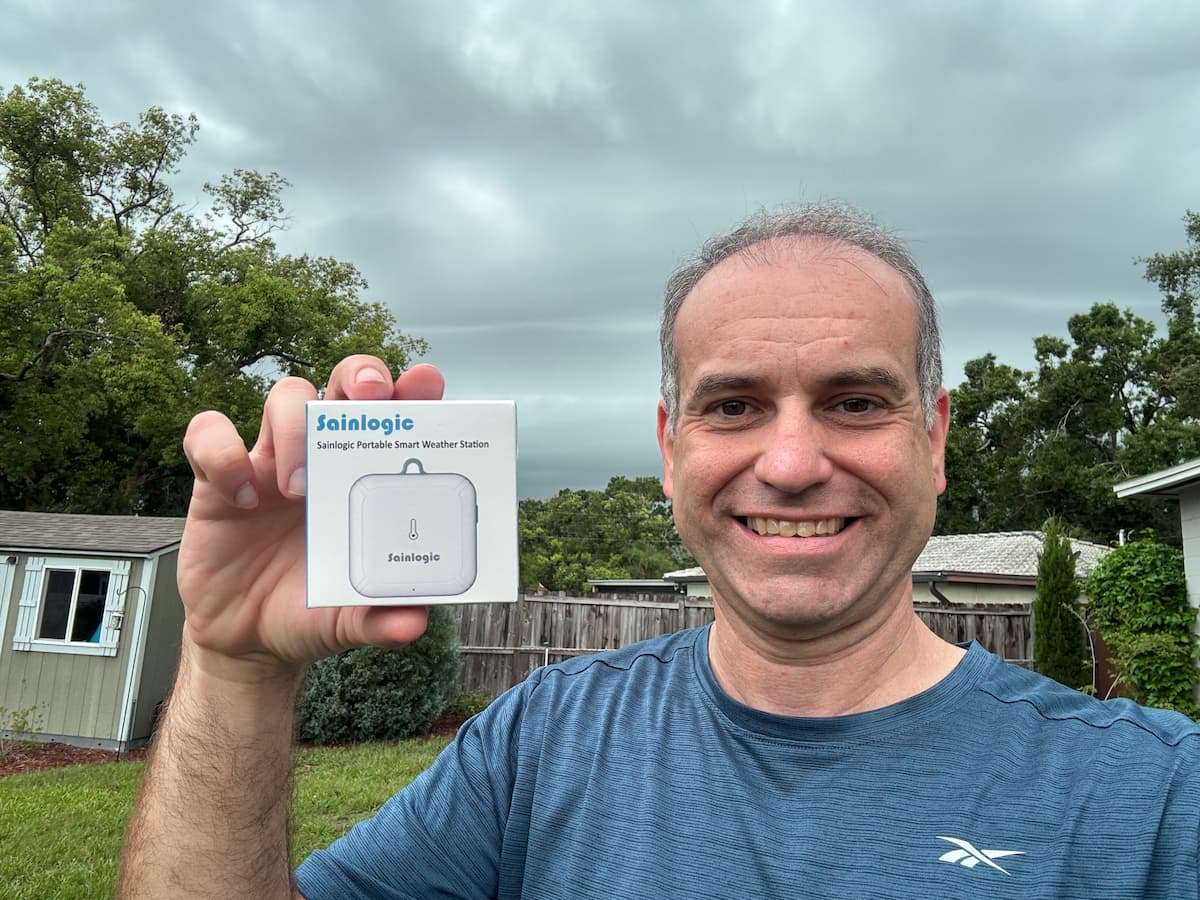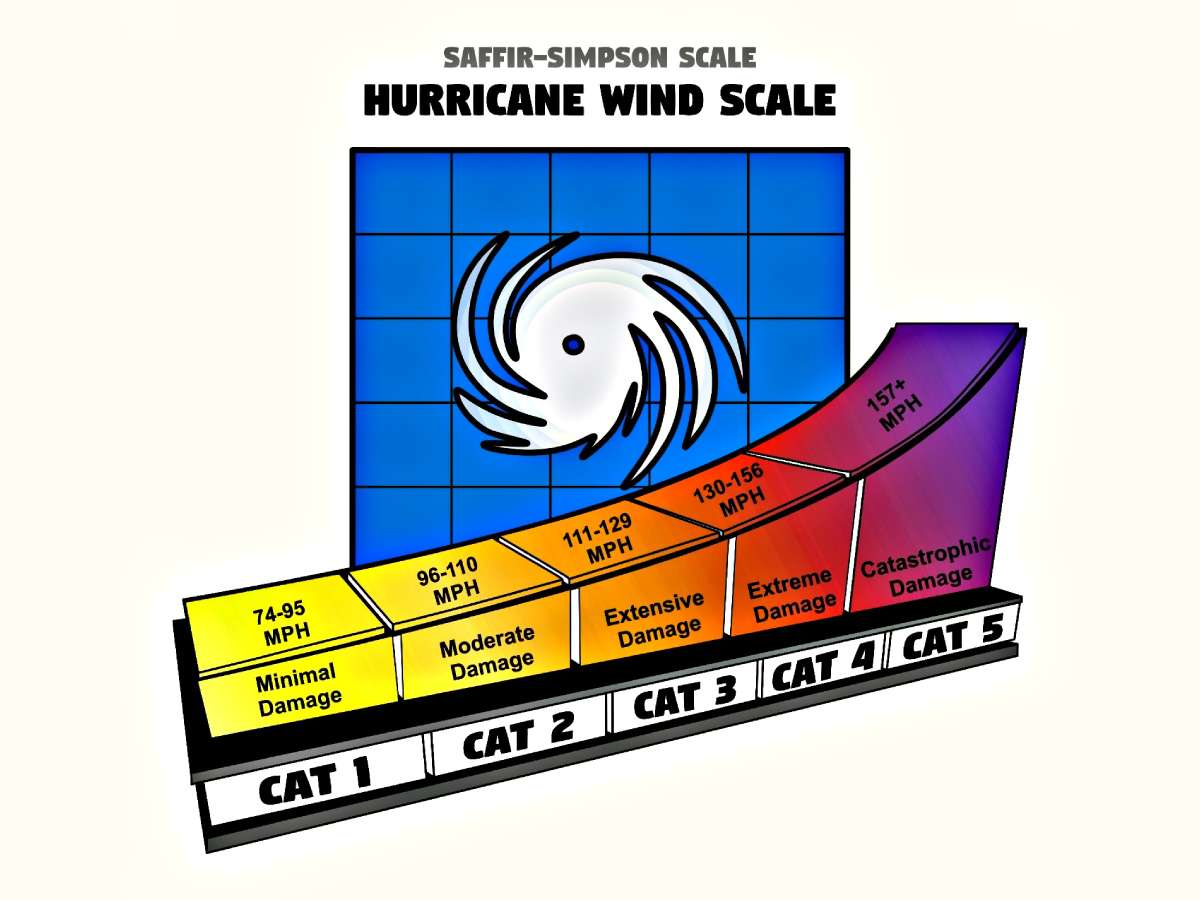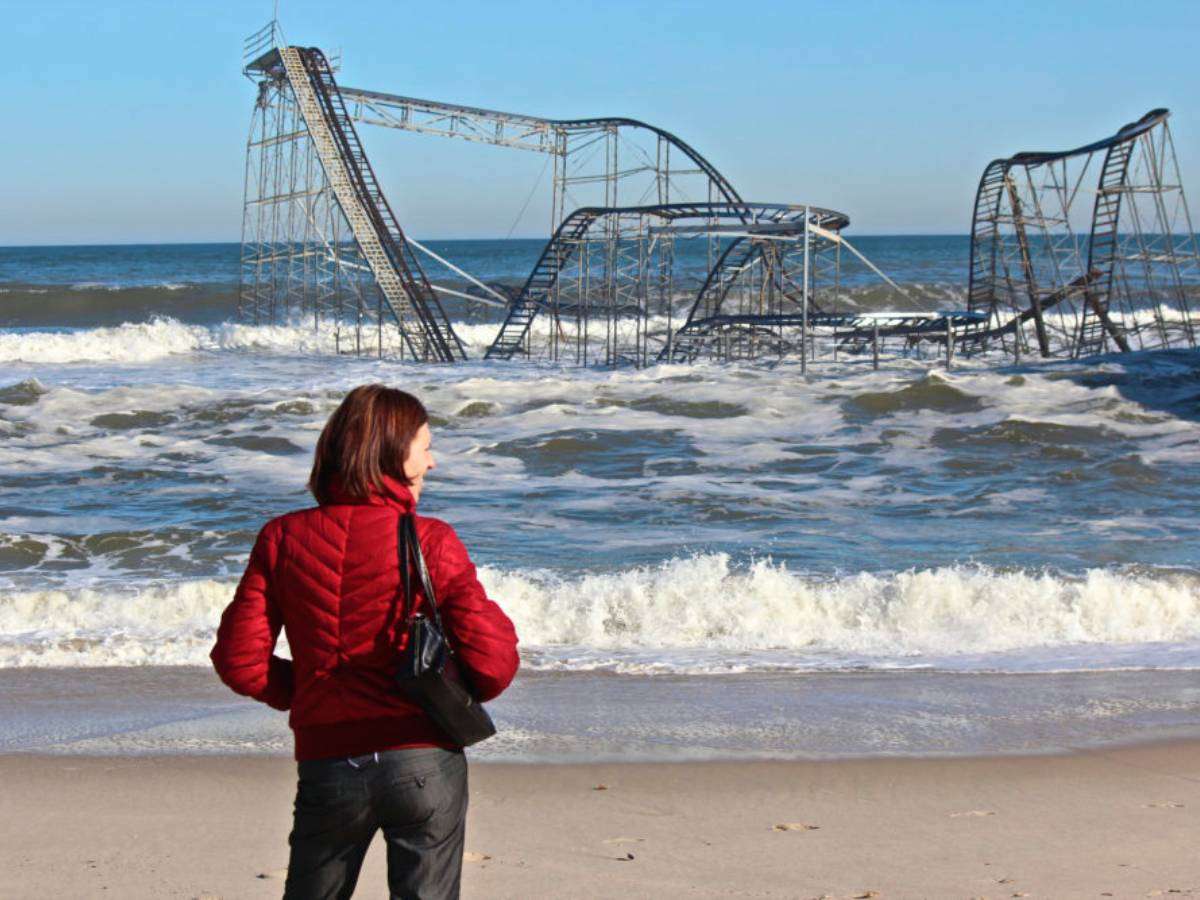Post-Hurricane Dangers
Getting back to normal after a hurricane has passed through your area is never easy.
Perhaps you’ve already experienced this firsthand. Or, maybe you have friends or loved ones who’ve been through it.
There’s no doubt about it… Hurricanes can be absolutely devastating. And they can leave behind all sorts of destruction — harming people, as well as property.

So a hurricane has just blown through your area and wreaked havoc. NOW what do you do?
You need to be aware of these things…
10 Hidden Dangers After A Hurricane Or Storm
These are the things you need to be aware of AFTER a hurricane has done its damage in your town.
My best advice is to prepare now, in case these items become legit dangers in your own home or neighborhood.
#1 – Food dangers
With regards to food, don’t eat anything that has come in contact with storm water — it could have all sorts of bacterial contamination, and it could make you very sick. If you lose power, keep your refrigerator door shut as much as possible, in order to keep the food inside cold. Consider adding dry ice if you think the power is going to be off for more than 24 hours.
#2 – Drinking water dangers
Pay attention to your local emergency weather channel (or weather radio alerts) with regards to water. You need to know if the water that is coming out of your tap is safe to drink — or even if it should be used for bathing or cooking. Ideally, you should have plenty of bottled water on hand. Make sure you follow whatever directions are given for purifying your water — whether that be boiling water or using water purification tablets. For babies… if bottled water is not available, boil the water for 1 minute and let it cool before mixing with infant formula.

#3 – Carbon monoxide dangers
Many people make the mistake of using charcoal grills (or camp stoves) INSIDE their homes during and after storms. Doing so is very dangerous — because those items can give off carbon monoxide, leading to carbon monoxide poisoning. Since carbon monoxide is odorless and colorless, you will not know the deadly gas is there until it is too late. NOTE: Even generators can release carbon monoxide, so do not use them inside your home.
#4 – Flood water dangers
Avoid flood waters whenever you can. If you must work in or around flood water, wear a life jacket or other flotation device — just in case. Flood waters have been known to crack foundations, and even cause walls to collapse inward. Any time water is around a building that you want to enter, don’t go inside. If that’s the building you live in… get out. If you simply have water in the basement, then pump it out, gradually. If you do it all at once, any water that is outside and around the building could make the walls in your basement collapse inward.
#5 – Driving dangers
Drive only if you MUST — but don’t drive your car through deep standing water. I’ve seen people getting caught in their cars and having to climb on top of them just to get above the water! And if the water is moving rapidly, cars can literally be swept away — even in relatively shallow water. Here are some interesting facts from the National Weather Service: Just 6 inches of fast-moving flood water can knock over an adult. It takes only 12 inches of rushing water to carry away most cars. Just 2 feet of rushing water can carry away SUVs and trucks. It is NEVER safe to drive or walk into flood waters!

#6 – Power line dangers
Avoid downed power lines. Even if a downed power line looks harmless, avoid it — it could easily still be live! If you happen to find any power lines down, call your local power company immediately. Also, stay away from overhead power lines when you’re doing clean up after a hurricane. And don’t forget that downed trees are often located near downed power lines. You can avoid electrocution by avoiding tree limbs that might have come into contact with power lines.
TIP: If any of your electrical circuits or electrical equipment gets wet (or is submerged in water), turn off the power using the main breaker or fuse box — and don’t turn it back on until an electrician has looked things over.
#7 – Mold dangers
Mold from flooding can cause serious illness in people (and pets). As long as cleanup begins within 48 hours of the flooding inside your home, there will be minimal risk from mold exposure. However, after 48 hours, mold growth will occur — and it will continue to grow as long as things are wet. To prevent mold growth, dry out your home right away — as soon as the water has receded. Open windows, use fans, and wipe down surfaces with soap & water to prevent mold from growing. If you do get some mold, use a mixture of 1 cup of bleach to 1 gallon of water to clean it up. Throw out any porous items that are not going to dry out quickly — because they can easily become moldy.

#8 – Gas leak dangers
Check your home for gas leaks. If you hear a hissing sound or smell gas, get out of the building immediately! If you can… turn off the gas from the main valve outside and call your local gas company. (NOTE: Only someone from the gas company can turn your gas back on, once it has been turned off.)
#9 – Clean up dangers
When doing cleanup after the storm, be sure to wear rubber gloves, boots (or shoes with rubber soles), long pants, long-sleeve shirts, and safety goggles. A face mask isn’t a bad idea either. All of these items will help to protect you while you’re cleaning up your house and property. And remember… you need to clean AND disinfect everything that got wet!
#10 – Equipment dangers
Let’s not overlook the fact that hurricane and storm cleanup often means you will be using equipment that you’re not the most familiar with — like chainsaws, ladders, and other power tools. Even lifting heavy items (to move them or clean them) can be a strain on your body. The point here is: Be careful! Hurricane cleanup lends itself to LOTS of hazardous situations.
Now might be a good time to remind you to make sure that you’re up-to-date on your tetanus shot.

The Bottom Line
Many of the above tips highlighting the dangers after a hurricane are familiar to those of us who live in areas that often deal with flooding.
But if you’ve just experienced your first hurricane (and the flooding and destruction that comes with it), my hope is that now you will have a better idea of what you can expect immediately after the hurricane.
These types of hidden dangers after a hurricane are likely to linger for weeks, months… or even years afterwards. So it’s in your best interest to do everything you can to prevent them from harming you and your family.
I hope that you’ve found this information helpful!
Resources For Hurricane Relief & Recovery
- Hurricane, Flood, And Tornado Cleanup Fact Sheet (Texas Dept. of Insurance)
- Safety Guidelines After A Hurricane Or Other Tropical Storm (Centers for Disease Control)
- A List Of EVERYTHING You Should Do After A Storm (National Center for Healthy Housing)
- Hurricane And Flood Recovery (Centers for Disease Control)
- What To Do Immediately vs. In The First Few Weeks After The Storm (Florida State University)
- How To Assess The Damage To Your Home & Property (Farm Bureau)



